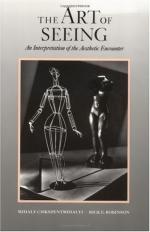|
This section contains 1,921 words (approx. 7 pages at 300 words per page) |

|
An aesthetic experience arises in response to works of art or other aesthetic objects. Although the term aesthetic itself was not introduced until the eighteenth century, it is clear that what are identified in contemporary discussions as "aesthetic experiences" were "felt" by individuals long before this: for example, when Plato worried about excessively emotional reactions to recitations of poetry or when Aristotle described the positive effects of attending the theater. Nevertheless, the exact nature of aesthetic experience—even the idea that there is such a unique form of experience—remains a matter of controversy.
What Aesthetic Experiences Feel Like
One area of contention concerns what it feels like to have an aesthetic experience—that is, whether there is some special emotion or attitude or other internal sign that enables one to recognize that what one is having is an aesthetic experience and not some other kind...
|
This section contains 1,921 words (approx. 7 pages at 300 words per page) |

|


